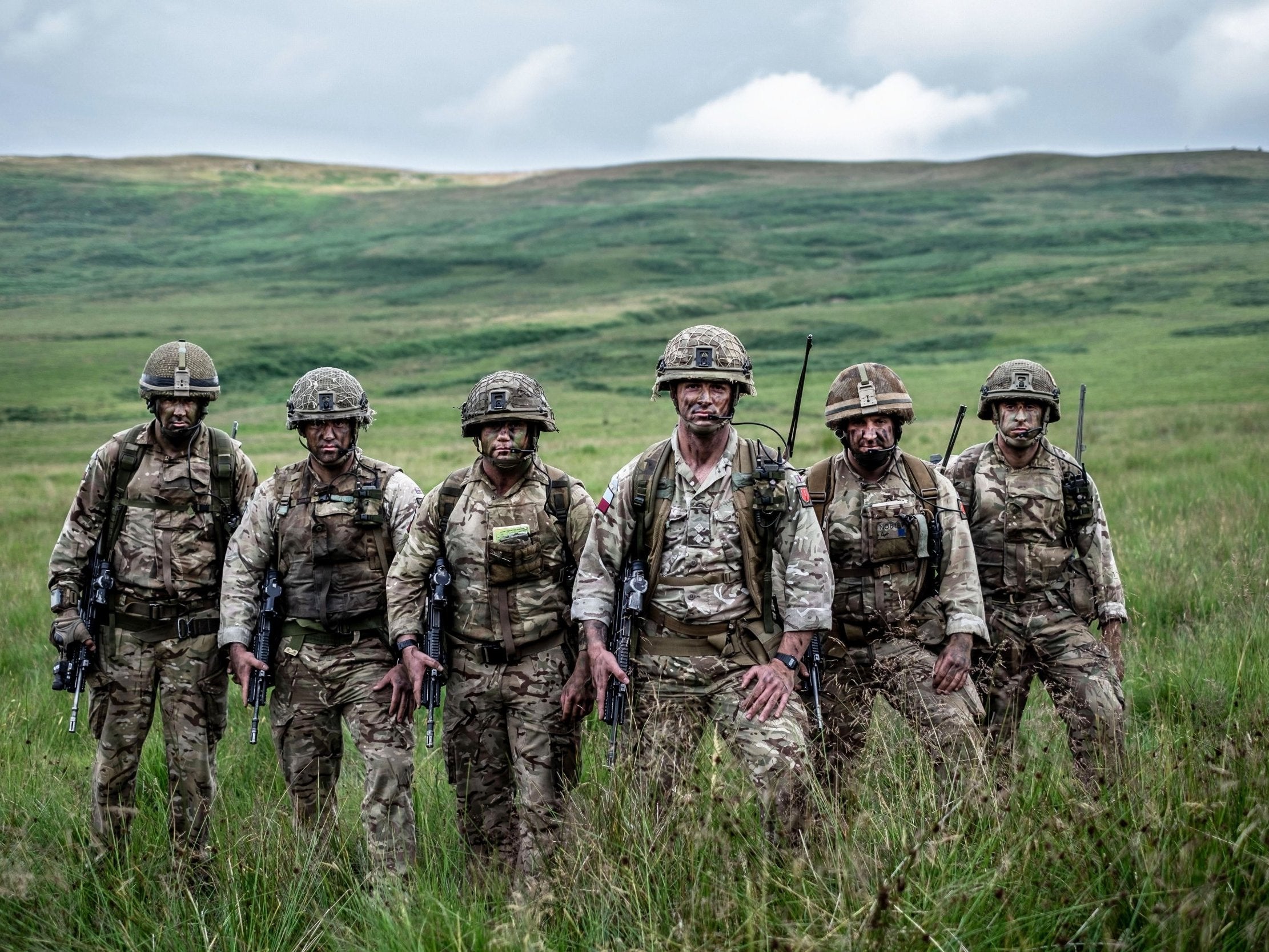The Paras: Men of War review: Delves straight into the personal experience of the Parachute Regiment
The usually secretive unit has granted access to a film crew for the first time in 35 years, for a three-part documentary about the selection process

Chekov's rule holds that if you introduce a gun in the first act, it needs to go off by the end of the play. Something similar is true for soldiers. If you're taught to use a gun, you want to have the chance to use it in anger. For most of the century so far, British squaddies could join up safe in the knowledge they would be shipped off to fight sooner or later. Now that the country is no longer at war, it has become harder to attract recruits, even for the elite Parachute Regiment.
That's why the usually secretive unit has granted access to a film crew for the first time in 35 years, for this three-part documentary about the selection process. Since the Paras were last featured, in the aftermath of their famous exploits in the Falklands, they have fought in Sierra Leone, Afghanistan and Iraq.
From the outset the production is elevated by its sensitive handling of the men – and the Paratroopers remain exclusively male – involved. These kinds of programmes have a tendency to fetishise toughness, lingering on assault courses and weaponry. The Paras: Men of War (ITV) delves straight into the personal experience of the strange and artificial world of Caterrick Barracks.
The three main subjects are Jack Kojo-Braima, a 17-year-old from north London away from home for the first time; 18-year-old York Avery from South Africa, and Alex Parry, at 31 older than his comrades, whose life has drifted since he served in the regular army. We follow them as the "joes" are put through the first weeks of training.
Much of this first episode follows the expected routine of shock, hardship and resilience, but the slow introduction of the trainers as characters in their own right adds unexpected depth.
It's a deft bit of production in a format not known for its subtlety. The instructors' role encourages them to be bullies, to foster a sense of "them and us" in their recruits. But there is more than one way to play the tyrant.
The instructors know the cameras are there, which creates a kind of David-Brentian tension as they chide, encourage and sometimes abuse their charges. They want to be seen as bosses first, parents second, but probably entertainers third.
On a night exercise, Corporal Harris falls in a ditch, to hilarity from the other instructors. He immediately takes it out on one of the men. It is hard to maintain the veneer of authority when you are up to your waist in Yorkshire puddle.
The scenery plays a valuable role. Blessed by a blanket of snow during filming, the producers make the most of the pathetic fallacy to show the effect this harsh new world has on the chipper young men's spirits. Avery, whose father was in the special forces, emerges as the most interesting recruit.

Growing up in South Africa, he was groomed for toughness and seems well suited to training compared to some of the others. But he has a more sensitive side, too, and a surprising singing voice. The rule of army training documentaries: if you show a hard young man in the first act, he has to have softened by the end.
Join our commenting forum
Join thought-provoking conversations, follow other Independent readers and see their replies
Comments
Bookmark popover
Removed from bookmarks